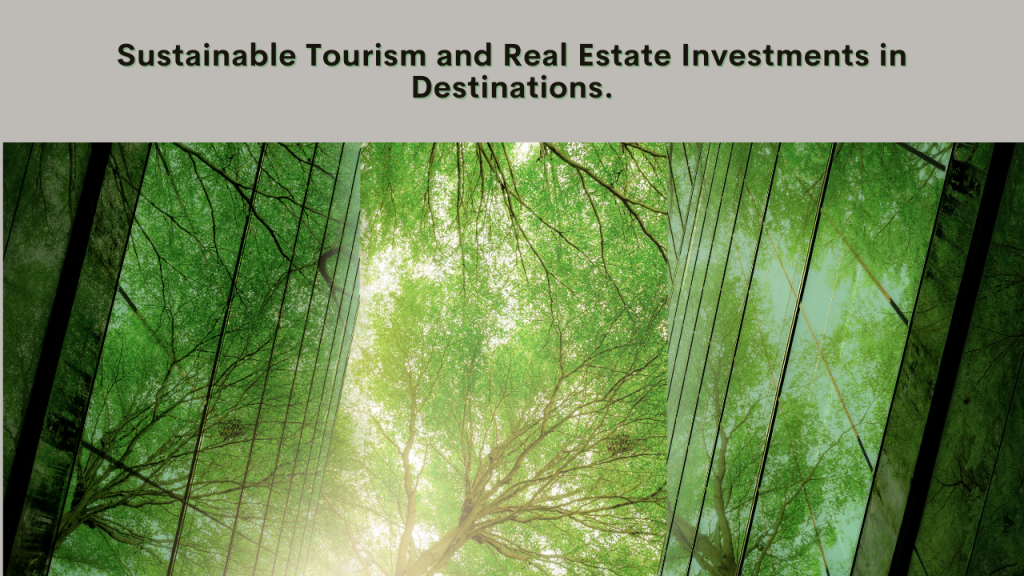As the global tourism industry continues to grow, so too does the importance of sustainable development practices in tourism and real estate sectors. With increasing awareness of environmental, social, and cultural impacts, investors, developers, and policymakers are recognizing the need to embrace sustainable practices that minimize negative effects and maximize positive outcomes for destinations and communities.
One of the key principles of sustainable tourism and real estate development is responsible land use planning and management. By prioritizing conservation, preservation, and restoration of natural habitats and cultural heritage sites, developers can minimize environmental degradation and protect the unique character and biodiversity of destinations. This approach not only enhances the attractiveness of a location but also ensures its long-term viability and resilience in the face of environmental challenges.
Furthermore, sustainable tourism and real estate development involve community engagement and empowerment. By involving local residents in the planning, decision-making, and implementation processes, developers can ensure that projects meet the needs and aspirations of the community and contribute to social cohesion, inclusivity, and prosperity. Additionally, investing in local capacity building, education, and training initiatives can create opportunities for employment, entrepreneurship, and skill development, enhancing the socio-economic well-being of residents and fostering a sense of ownership and pride in their community.
In addition to environmental and social considerations, sustainable tourism and real estate development also encompass economic viability and resilience. By adopting innovative design, construction, and operational practices that reduce resource consumption, waste generation, and carbon emissions, developers can minimize operating costs, enhance asset value, and future-proof their investments against climate-related risks and regulatory changes.
In conclusion, sustainable tourism and real estate development are essential for ensuring the long-term viability, resilience, and prosperity of destinations and communities around the world. By embracing responsible land use planning, community engagement, and innovative design and operational practices, investors, developers, and policymakers can create destinations that balance economic growth with environmental protection, social inclusion, and cultural preservation, leaving a positive legacy for future generations.



